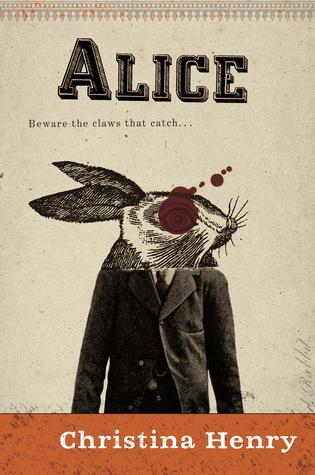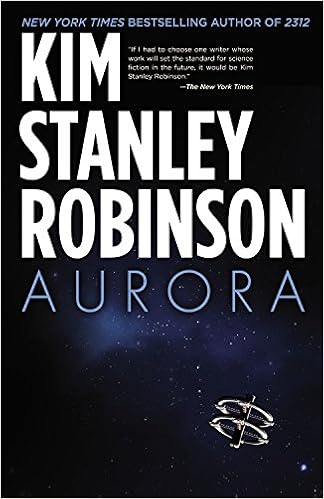TwntyOneTwlv
Member
Finished up And On That Bombshell... today, which is a book about Top Gear written by the script editor who had been with the show since before the reboot. I liked it a lot. I'd say it's required reading if you're a fan.
Read the Emperor's Soul, it's short and fantastic.
I am two thirds of the way through the Dragon's Path by Daniel Abraham.
It took me a couple of chapters to get into the book, but I am hooked now. I like how Abraham gets you to sympathize with the various viewpoints, only to have them take a political stance or do something that is actually pretty reprehensible.
I think I saw that at least Aidan has read the final book in the series already. The the quality hold up?
Also, this is my 12th novel of 2016. I have a feeling that my 35 novel goal on Goodreads was too conservative.
Yep. Loved the last book. It maintains its measured pace and tone throughout, the characters always surprise you, and the resolution to many of the plot's conflicts are interesting and atypical for epic fantasy. Good stuff all around. Geder, Cithrin, and Clara are all stars.
On to this now:

Good to hear. I guess I am in for the other 4 novels then.
I liked the Expanse books, so I should have gotten on Abraham's fantasy stuff sooner.
How is the Long Price Quartet?



I'm reading all of Dickens novels, in choronological order. Nicholas Nickelby (his third) is my favourite so far.
One thing you never really see when they dramatise Dickens on TV is the prejudice. The anti-semitism in Oliver Twist is off the chart, and every single married woman in all the books I've read so far is a ballbuster, it seems. It's a bit off-putting, to be honest, even when you allow for fact that the books were written 180 odd years ago.
Finishing up Shadow of the Torturer Gene Wolfe . It feels like a better written Name of the Wind but felt pretty light on plot overall. Disliked how much of a chick magnet the protagonist was. Probably wont read the sequels.
I know what he means. He means that there is a clear line from beginning to end, some kind of goal to achieve or path to be walked. In that sense he's right. Most of the people Severan meets and challenges he faces are disconnected from each other thematically. Even if, underneath the story, there is a vast, complex web that ties everything together but this isn't "plot" per se. I discussed it with dresden a long time ago when I was reading it and he agreed that there is a theme park-ness to Book of the New Sun.
Severan is a bit of a chick magnet but he isn't a very sexual person as far as I remember.




post updates pls
I know what he means. He means that there is a clear line from beginning to end, some kind of goal to achieve or path to be walked. In that sense he's right. Most of the people Severan meets and challenges he faces are disconnected from each other thematically. Even if, underneath the story, there is a vast, complex web that ties everything together but this isn't "plot" per se. I discussed it with dresden a long time ago when I was reading it and he agreed that there is a theme park-ness to Book of the New Sun.
Severan is a bit of a chick magnet but he isn't a very sexual person as far as I remember.

I don't think I got it when I was reading it and maybe I still don't. But now that its done I get the impression it's a episodic/journal type collection of events that aren't really connected. He'll hop around to different towns executing people and bedding the next most beautiful woman in the world. If its like The Witcher - The Last Wish or Lost Odyssey then I might enjoy it more. I honestly didn't get any of the Sf/Dying sun stuff either until I checked the wiki, but mybe I wasn't paying attention.
Ah, I see.The Name of the Wind comparison was just the closest thing I could think of with regards to the style of prose and slow pacing.
Gonna have to admit defeat on Paradise Lost, I just can't get into the rhythm at the moment. Will pick up the annotated version in the future and try again.
It's definitely not a story like The Witcher or similar. Not a traditional fantasy, or bildungsroman, or even quest. It's very much its own thing.
Good to hear. I guess I am in for the other 4 novels then.
I liked the Expanse books, so I should have gotten on Abraham's fantasy stuff sooner.
How is the Long Price Quartet?
The Lies of Locke Lamora is $2 on kindle today.
If I can get myself into the flow of a poem I'm fine, but if I can't then it's pretty much done even if I find the subject interesting.I have it on my shelf, but I'm not really willing to put forth the effort to wade through mid-1600s English. Especially since I don't really like poetry.
I have it on my shelf, but I'm not really willing to put forth the effort to wade through mid-1600s English. Especially since I don't really like poetry.
It's definitely not a story like The Witcher or similar. Not a traditional fantasy, or bildungsroman, or even quest. It's very much its own thing.
Yes this is the best explanation. You treat Book of the New Sun like an account of historical events, and you're playing the role of archaeologist digging through ancient literature.
I have it on my shelf, but I'm not really willing to put forth the effort to wade through mid-1600s English. Especially since I don't really like poetry.
Front Cover:

The streaks around the face is actually holographic. Has a cool effect.
Spine:

2001 and A Space Odyssey in silver while Arthur C. Clarke is holographic.
Book in slipcase:

In book illustration(1 of 7):

Got myself a refurbished Kindle Keyboard for $18. I'm loving it.
You know, I'm just going to say that that is a rather odd purchase for someone who isn't into poetry!
The Lies of Locke Lamora is $2 on kindle today.
Every few years I try to take a swing at one of the major classics I haven't read, and I think I was riding high on Mike Carey's Lucifer at the time.
I did the same thing with The Canterbury Tales after reading a few books inspired by it.
I am not a big enough literature and linguistics buff to bother with Middle English, or the transition period between that and Modern English. Once we get to the late 18th century (and especially the 19th century), English literature becomes a lot more readable.
For now, those books sit on my shelf along with several hundred other books. Maybe I will try them again in a decade or two. Maybe my daughter will when she gets older.
SHall I compare thee to a Summers day?
Thou art more louely and more temperate:
Rough windes do ſhake the darling buds of Maie,
And Sommers leaſe hath all too ſhorte a date:
Sometime too hot the eye of heauen ſhines,
And often is his gold complexion dimm'd,
And euery faire from faire ſome-time declines,
By chance,or natures changing courſe vntrim'd:
But thy eternall Sommer ſhall not fade,
Nor looſe poſſeſſion of that faire thou ow'ſt,
Nor ſhall death brag thou wandr'ſt in his ſhade,
When in eternall lines to time thou grow'ſt,
So long as men can breathe or eyes can ſee,
So long liues this,and this giues life to thee,
Whilom, as olde stories tellen us,
Ther was a duc that highte theseus;
Of atthenes he was lord and governour,
And in his tyme swich a conquerour,
That gretter was ther noon under the sonne.
[...] Farewel happy Fields
Where Joy for ever dwells: Hail horrours, hail
Infernal world, and thou profoundest Hell
Receive thy new Possessor: One who brings
A mind not to be chang'd by Place or Time.
The mind is its own place, and in it self
Can make a Heav'n of Hell, a Hell of Heav'n.
What matter where, if I be still the same,
And what I should be, all but less then hee
Whom Thunder hath made greater? Here at least
We shall be free;[...]
Shall I compare thee to a summer’s day?
Thou art more lovely and more temperate:
Rough winds to shake the darling buds of May,
And summer’s lease hath all too short a date:
Sometime too hot the eye of heaven shines,
And often is his gold complexion dimmed;
And every fair from fair sometime declines,
By chance, or nature’s changing course, untrimmed:
But thy eternal summer shall not fade,
Nor lose possession of that fair thou ow’st,
Nor shall death brag thou wander’st in his shade
When in eternal lines to time thou grow’st:
So long as men can breathe or eyes can see,
So long lives this, and this gives life to thee.
